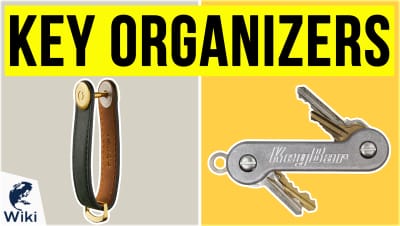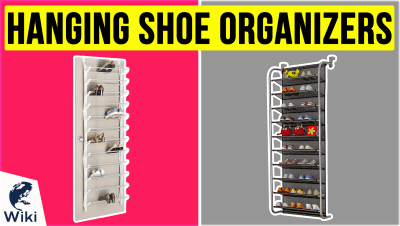7 Organizations Fighting To Improve The Lives Of Workers
With many industries struggling and income inequality increasing, it's critical that someone stand up for working people in the United States. Each of these organizations does its part to help people stay informed, organize, and take action to ensure everyone can have access to education, employment, proper wages, and safe conditions. This video was made with Ezvid Wikimaker.
7 Groups Making Life Better For Working People
| Organization | Headquarters | Mission |
|---|---|---|
| Job Opportunities Task Force | Baltimore, MD | Works to eliminate barriers to employment by advocating for policies that promote better wages and investments in education |
| Worker Justice Wisconsin | Madison, WI | The only non-profit worker center in Wisconsin, aids in organizing and training to support the rights of workers |
| Per Scholas | New York, NY | Collaborates with businesses to design free industry-specific courses to teach skills, close the technology gap, and find employment for students |
| National Conference on Public Employee Retirement Systems | Washington, D.C. | The largest North American trade association for public-sector pensions, manages funds for retired and active public servants |
| International Association of Bridge, Structural, Ornamental, and Reinforcing Iron Workers | Washington, D.C. | Represents ironworkers by providing benefits, support, training, and political action |
| National Economic & Social Rights Initiative | New York, NY | Advocates for policies that promote equal access to health care, housing, education, and dignified employment |
| Texas AFL-CIO | Austin, TX | State labor federation with more than 200,000 members that offers union support, educational programs, community service, and legislative advocacy for working families |
Trained Welders from the Ironworkers
Access To Paid Time Off By Union Membership
As a percentage of civilian workers in the United States in March 2019:
| Type of Leave | Union Members | Non-Union Workers |
|---|---|---|
| Paid Sick Leave | 91% | 73% |
| Paid Jury Duty Leave | 84% | 56% |
| Paid Funeral Leave | 83% | 54% |
| Paid Holidays | 81% | 77% |
| Paid Vacation Time | 75% | 76% |
| Paid Personal Leave | 63% | 43% |
| Paid Military Leave | 55% | 29% |
| Paid Family Leave | 22% | 18% |
NESRI on Changing the Conversation
Income Inequality in the U.S.
| Percentile | Average household income |
|---|---|
| Bottom 90% | $34,074 |
| Top 10% | $312,536 |
| Top 5% | $477,293 |
| Top 1% | $1,363,977 |
| Top 0.1% | $6,747,439 |
In Depth
Although all people need good jobs with livable wages and healthcare in order to support themselves and their families, the reality is that millions in the United States are unemployed, underemployed, and have low wages and minimal or no healthcare. This situation is worsened by federal and local laws that punish poverty, unequal access to educational and employment resources, and unsafe workplaces. However, there are organizations striving to support workers and build an economy that provides opportunities for all. In no particular order, here are seven nonprofits laboring to create a more fair and constructive workplace.
Starting off the list at #1 is Job Opportunities Task Force. Based in Baltimore, J.O.T.F. develops and advocates for policies and programs that increase the skills, employment opportunities, and incomes of low wage workers and job seekers in Maryland. It works to help people earning low-wages advance to high-paying positions by transforming the systems that create barriers to advancement. In order to achieve its aims, it launches targeted, often limited-duration projects that specifically focus on special populations. These initiatives are founded on the pillars of public policy and advocacy, and research and public education.
The policy priorities of Job Opportunities Task Force are: adult education and post-secondary access and affordability; wages and benefits; reducing the impact of incarceration on workers; skills training; and transportation. Additionally, its research and education efforts examine and address the criminalization of poverty, the financial barriers to education, and the costs of being poor. Notable among J.O.T.F.'s programs is Project JumpStart, an 87-hour pre-apprenticeship construction training initiative that has enrolled over 1,000 Baltimore residents. Anyone interested in supporting Job Opportunities Task Force can donate or attend one of their events.
Additionally, its research and education efforts examine and address the criminalization of poverty, the financial barriers to education, and the costs of being poor.
At #2 is Worker Justice Wisconsin, the only non-profit worker center in Wisconsin. It builds collective employee power through training, labor rights education, and collective action and community engagement with an emphasis on interfaith involvement. To achieve this, it takes a three-pronged approach: first, it helps resolve workplace problems through collaboration, advocacy, and collective action; second, it develops leadership and workplace democracy through education and labor organizing; third, it mobilizes a coalition of individuals, labor unions, faith communities, and community organizations committed to economic, racial, immigrant, and employment justice.
Worker Justice Wisconsin annually trains between 500 and 700 people from throughout Wisconsin in its worker center or one of its community workshops. Since 2002, W.J.W. has been publishing a Workers' Rights Manual in English and Spanish about the laws that cover the workplace and the agencies that enforce those laws. The nonprofit provides a number of faith resources, including sermons and a religious text study project. It also participates in a number of campaigns each year, including its fight to raise wages, and its participation in the Dignity at Work Coalition. The W.J.W. welcomes donations, volunteers, and new supporting members.
In the #3 spot is Per Scholas, a nonprofit dedicated to making transformative technology careers possible for people from often overlooked communities. Founded in 1995, P.S. focuses on creating real opportunities for hard workers to build better lives. It achieves this by preparing people to work in key technical roles and closing the skills divide, and by building a more diverse technical workforce. 90% of its students are people of color, one third are women, and one third are disconnected young adults. P.S. allocates over 81% of its expenses to its programs and services, and it has a four star rating at Charity Navigator.
It achieves this by preparing people to work in key technical roles and closing the skills divide, and by building a more diverse technical workforce.
Per Scholas's approach to creating its educational programs rests on three pillars: first, it collaborates with businesses to design industry and job-specific courses based on the IT needs of employers; second, it teaches workplace-tailored technology skills training and professional development; third, it matches talented graduates to employers, and provides career support throughout the hiring process. This model helps 80% of P.S.'s graduates obtain jobs, and increases their post-training income by 400%. Finally, training, certification, and career placement is free for all students. Interested supporters can donate on Per Scholas's website.
Coming in at #4 is the National Conference on Public Employee Retirement Systems. Founded in 1941, N.C.P.E.R.S. is the largest North American trade association for public sector pensions, and represents approximately 500 funds in the U.S. and Canada. Its network of public trustees, officials, and investment professionals oversees nearly $3 trillion in retirement accounts. It manages the funds of seven million retirees, and almost 15 million active public servants, including firefighters, law enforcement officers, teachers, and other public servants. N.C.P.E.R.S. works to promote and protect pensions by focusing on advocacy, research, and education.
The nonprofit's activist projects and resources include legislative advocacy and testimony, grants, a Pension Defense Tool Kit, and an annual legislative issues book that highlights the key problems affecting public pension funds. The National Conference on Public Employee Retirement Systems offers a wide range of resources to its constituents, including: regular and research publications, membership surveys, information on accounting, pension legal protections, and healthcare. N.C.P.E.R.S. also offers webinars, webcasts, and conference videos through its Center for E-Learning. Interested supporters can become members or attend one of its events.
The National Conference on Public Employee Retirement Systems offers a wide range of resources to its constituents, including: regular and research publications, membership surveys, information on accounting, pension legal protections, and healthcare.
At #5 is the International Association of Bridge, Structural, Ornamental, and Reinforcing Iron Workers. Founded in 1896, it represents 120,000 members in North America. The group represents ironworkers who work on bridges, structural steel, ornamental, architectural, and miscellaneous metals, rebar, as well as in shops. It provides benefits and support to its members, particularly the advantages that working under a collective bargaining agreement brings. The association focuses on providing advocacy, news, career information and support, and safety resources, and also provides organizing assistance upon request.
The association offers an extensive array of training resources, including an apprenticeship competition, college credits, welding certification, an instructors' training course, and more. Its advocacy arm includes the Ironworkers Political Action League, which raises funds to elect pro-union and pro-worker candidates to public office, lobby for legislation, keep legally informed, and review governmental matters. The group's safety programming includes an injury countdown, safety resources, bulletins, and regulatory assistance. The association accepts donations to its Ironworkers Disaster Relief Fund.
At #6 is National Economic and Social Rights Initiative. Founded in 2004, N.E.S.R.I. partners with communities to build a broad movement for economic and social liberties, focusing on health, housing, education, and dignified employment. It believes that community-led social movements are the best route towards sustainable and progressive social change, and uses a human rights framework for all of its actions and programs. N.E.S.R.I.'s work is supported by the six core elements of research, analysis and documentation, advocacy support, network building, communications, transnational links, and training.
N.E.S.R.I.'s work is supported by the six core elements of research, analysis and documentation, advocacy support, network building, communications, transnational links, and training.
National Economic and Social Rights Initiative runs a number of major undertakings to advance its mission, including fair and equitable urban development, campaigning for healthcare accessibility, needs-based budgeting, and developing dignified learning environments in schools. N.E.S.R.I. also runs its New Social Contract project, which aims to comprehensively and adaptively transform how communities build equitable systems for everyone, and to deepen America's democracy. The initiative also provides a searchable catalog of human rights resources on its website, including fact sheets, videos, and reports. The organization welcomes donations and local activism.
And finally, in the #7 spot is the Texas American Federation of Labor and Congress of Industrial Organizations. The Texas branch of the A.F.L.C.I.O. strives to ensure all working people in Texas are treated fairly, and advocates for better pay and benefits, workplace rights, quality education, fair trade and manufacturing legislation, and immigration rights. The federation has 9 main pillars of work, including legislation and politics, labor-related actions and campaigns, human relations for workers in need, field education and research, digital strategy, communications, education, leadership development, and legal support and information.
The Texas A.F.L.C.I.O. supports a number of major initiatives across all of its pillars. One of its most notable activities is its Raising Wages Agenda, which negotiates labor agreements, strengthens workplace safety laws, and works to increase the minimum wage and expand health care to more working poor Texans. It also assists in labor-related actions and campaigns across Texas by organizing workers, convening demonstrations and protests, and helping with issue-related voter turnout drives. The Texas A.F.L.C.I.O. offers a number of ways to become involved, including participation in strikes and protests, and attendance at their events.























